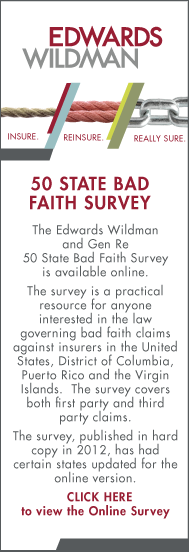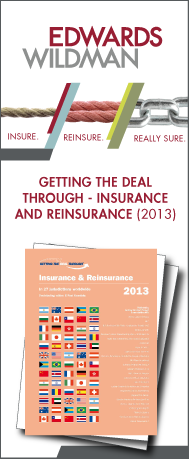 |
|||||||||||||||||||||||||||||||||
| edwardswildman.com | |||||||||||||||||||||||||||||||||
|
Iran Economic Sanctions Update by John C. Fusco (Stamford) The United States has maintained economic sanctions against Iran consistently since 1979, with only a brief relaxation of the restrictions in the early 1980’s. Recent developments in the diplomatic arena may allow for another relaxation of the now-expanded sanctions. Since the initial and brief relaxation of restrictions, the United States has imposed more stringent and expansive economic sanctions on Iran. The most recent regulations, including the Comprehensive Iran Sanctions, Accountability, and Investment Act of 2010, Pub. L. No 111-195 (2010) (CISADA) and the National Defense Authorization Acts for Fiscal Years 2012 and 2013, which includes the subtitle, “Iran Freedom and Counter-Proliferation Act of 2012” (IFCPA), expand the reach of U.S. sanctions against Iran to include several new sectors and activities. Most importantly, the IFCPA’s expanded ban includes prohibitions on insurance, reinsurance and underwriting activities. In our August 2013 issue of our Insurance and Reinsurance Review, we described the requirements that any person providing underwriting services, insurance or reinsurance services must follow to avoid violating the Act’s prohibitions on conducting any dealings involving Iran. In short, compliance with the Act requires that an insurer or reinsurer maintain a Compliance Program in writing that details various steps, including screening of existing policies as well as screening all potential parties to an insurance contract against the United States Treasury Office of Foreign Assets Control (OFAC) Specifically Designated Nationals List (SDN List). Additionally, the program must set out the steps required if an insurer or reinsurer discovers that a party to a policy is an Iranian National and/or was recently added to the SDN List. Recent negotiations between the U.S., UK, France, Russia, China and Germany (known as P5 +1) with Iran resulted in a specific plan to halt and roll back Iran’s nuclear program. In return for Iran’s agreement and its progress over the next 6 months in stopping the development of its nuclear weapons program and rolling back key areas of its nuclear program, the U.S. and its partners in the P5 +1 diplomatic group, as well as the European Union, will begin modest relief and relaxation of the economic sanctions imposed on Iran. While no specific relief regarding the Iran sanctions were provided, broad categories of relief are targeted by the White House. It was widely reported on January 13, 2014, that the U.S. and European Union will likely ease economic sanctions against Iran regarding petrochemicals, autos, precious metals and associated services. “Associated services” includes, among other things, “insurance, transportation or financial services.” As sanction relief for Iran faces battles on Capital Hill, companies should maintain a strong compliance program, including review of the current language of the Iran Sanctions Regulations every time it considers conducting business with Iran or an Iranian National. Because OFAC is the main point of contact on economic sanctions issues imposed on Iran, companies considering doing business in Iran as sanction relief evolves must develop lines of communications with the OFAC regulators. Discussions with OFAC during these changing times may be useful if an insurer or reinsurer is seeking to obtain a specific license for underwriting or other insurance service activities. Additionally, companies must keep in close contact with their brokers and restate that despite recent political developments, until the regulations are amended, doing business with Iran and Iranian Nationals remains a difficult prospect. While it is likely that relief of the economic sanctions regime imposed on Iran will be implemented, no changes have yet been made. Therefore, companies must maintain a robust and active compliance program and review all transactions with Iran and Iranian Nationals to determine if those transactions are permitted. Any real relief or reduction of the economic sanctions imposed on Iran will only occur after Iran takes steps to comply with the January 13, 2014 agreement and those steps are verified by the U.S. and the P5+1 partners. Contact
| ||||||||||||||||||||||||||||||||
 |
|||||||||||||||||||||||||||||||||


